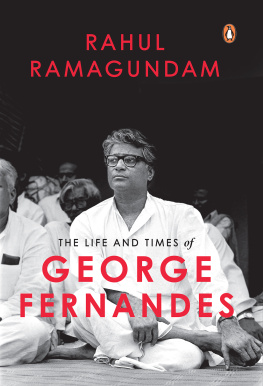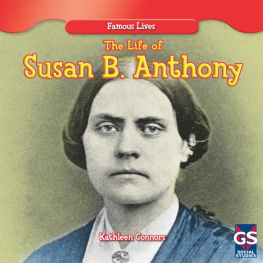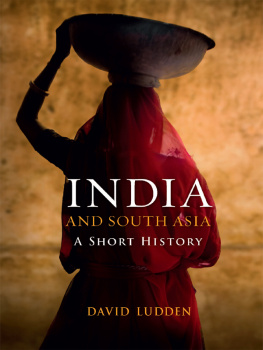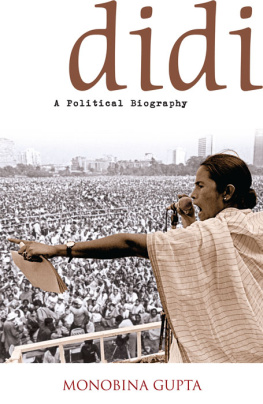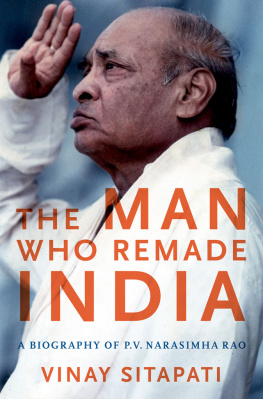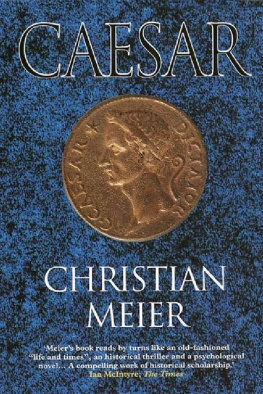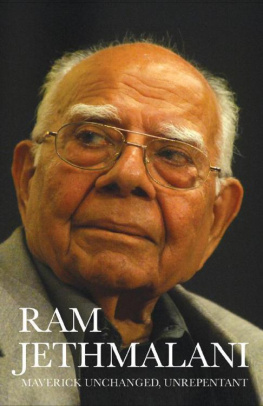THE
REBEL
THE
REBEL
A Biography of
RAM JETHMALANI
SUSAN ADELMAN
PENGUIN BOOKS
This book is dedicated to my husband, Martin Adelman, who
encouraged me to undertake this project from the beginning and
throughout the months of work that ensued. Professor of law
and provocateur in the same spirit as Ram, whenever I ran up
against a difficult legal question he routinely said, You can read.
Law is not that difficult to figure out.
Contents
Foreword
Of the sternly majestic and eloquent advocates the Indian Bar has had in the last six decades, Ram Jethmalani has acquired a unique stature. Ram has great stamina to argue and deliver performances with captivating skill, law-logic, astute activeness and innovative interpretations. Watching Ram in action in a court is a treat for court-watchers and an enlightening lesson for youngsters. Rams life, as he himself says, has been inextricably woven with the law and the courts of justice.
This biography, following Maverick Unchanged, Unrepentant , delves into the private side of the life of Ram, captioning a wide range of relations among family and friends, drawing largely on first-hand accounts and some from a wide sweep of sources. While the intricacies and details given in the book reflect the propinquity of the author with Ram and his family, she has not attempted to boost Rams greatness. The book tells us what Ram actually is with his family, in his social life, his professional life and in his political life.
The book, written by a person who lives thousands of miles away, serves as a wonderful guide for the general reader, law students, budding lawyers, and all those who are keen on understanding the intricacies of law and justice as it extensively deals with pro bono causes fought and argued by Ram and his incisive art of cross-examination. It contains a fascinating account of some of the leading contentious legal issues of the day in which Rams role is singular and significant.
Ram has rushed towards major flashpoints in Indian political history. The author has succinctly marked down all the important events of Indian political and legal history linked to the life of Jethmalini. The reading of the book is the journey through the political controversies in India after Independence. The milestones of Indian politics and history have shaped Rams career and many of the milestones of Rams career have left their imprint on the history of India.
There is no mystery about Rams individual actions. He is a man who has stood up against corruption in public life and communal violence. He has always tried to reconcile conflict and bring peace among the community and for that he has been conferred with the Human Rights Award and World Peace through Law Award.
Ram at the age of ninety-two has retained a boyish charm and a sense of fun. He does not hide his youth as he still does things he used to do when he was nineteen. With lawyering in his blood, teaching in his heart and politics his passion, Ram is a truly extraordinary and multifaceted personality. This book is an inspiration to the present and future generation of lawyers.
R.M. Lodha
Former Chief Justice of India
Introduction
Ram Jethmalani has been called many thingsa legal legend, a wizard of the law, and the greatest lawyer in India. He has also been described by epithets that are considerably less flattering. What is beyond doubt is that, at 90 years of age, his legal career started before the partition that created modern India and Pakistan, and it has spanned the entire history of post-colonial India.
Few figures in India have dominated the headlines, been a magnet for controversy, commanded respect, evoked anger, and earned reverence in such great measure. As a young immigrant lawyer, he started out defending his refugee communitys right to write their own language in their own script, and as a venerable senior lawyer he has become known for defending the most notorious figures of India. He also has become one of the most senior Members of Parliament, serving for more than 35 years.
Over the last 70 years, several themes have emerged in his life.
Ram served both as the Union Minister of Urban Affairs and Employment and as the Union Minister of Law, Justice and Company Affairs. Immediately thereafter, he formed the Ram Jethmalani Kashmir Committee, to mediate between India, Pakistan and the rebels of Kashmir. He commands enough respect on both sides of the border to be able to travel freely between Pakistan and India on missions of peace.
A lifelong legal educator, he played a major role in initiating the National Law Schools of India, itself an accomplishment that would merit him a place of great honour in the legal profession, but in the fullness of his life, this achievement has almost been forgotten.
Ram may be the most pro-Israel politician in Asia, another role that is not widely known. He was a strong champion of Israel even when the Indian government would not allow an Israeli embassy, and it is a story that has not been told before. But Ram has never been sectarian. He lectures widely about the peaceful beginnings of Islam, when great early leaders emphasized learning and education. He has argued a landmark case in which he contrasted Hindutva with Hinduism, and he had to analyse whether Hinduism is a religion. He believes in astrology, and he remembers wistfully the gentle Sufis of his childhood in Sindh.
Sindhis are a minority community in India, and perhaps that is why Ram has vigorously defended the rights of all minorities, from lower caste Hindus to Christian Dalits, to Tibetans who fled from the Chinese into the Indian Himalaya. In one famous case, and in parliamentary debates for years later, he fought against great odds to establish reservations to help backward classes, some consequently calling him the Father of Social Justice in India.
Ram burst into public prominence during the state of Emergency in the late 1970s, when he was the chairman of the Bar Council of India and a powerful opponent of the Indira Gandhi regime. In Washington, DC, he spoke eloquently against this Emergency before a Congressional committee. Soon after his presentation, Jimmy Carter was elected President of the United States, and he vigorously condemned dictatorial governments. When President Carter was inaugurated, Pakistan called for elections and so did India. Ram was first elected a Member of Parliament on his return to India, immediately after the Emergency was lifted and elections called.
Ram, helped in earlier years by his daughter Rani and later by his son Mahesh, both lawyers, has fought for years against the abuses of the NehruGandhi dynasty. Whether it was Indiras assumption of dictatorial powers, the acceptance of kickbacks to buy arms, or the deposit of vast amounts of illegally gotten gains in European banks, Ram and his family never stopped fighting to expose it all.
Critics complain that Ram fights institutional corruption, but he defends the rights of criminals. That is truehe believes just as much in individual rights of everyone as he does in his cherished ideal of the heroic lawyer who stands up against oppression, fights injustice and is a guardian of freedom. Despite being in personal peril, Ram waded in with 50 lawyers to intercept a bloody pogrom against Sikhs in Delhi after Prime Minister Indira Gandhis assassination.


